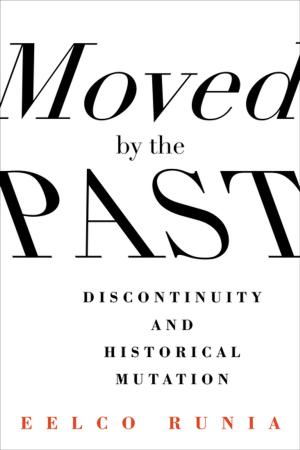Bachelor Japanists
Japanese Aesthetics and Western Masculinities
Fiction & Literature, Literary Theory & Criticism, Gay & Lesbian, Asian, Far Eastern, American| Author: | Christopher Reed | ISBN: | 9780231542760 |
| Publisher: | Columbia University Press | Publication: | November 15, 2016 |
| Imprint: | Columbia University Press | Language: | English |
| Author: | Christopher Reed |
| ISBN: | 9780231542760 |
| Publisher: | Columbia University Press |
| Publication: | November 15, 2016 |
| Imprint: | Columbia University Press |
| Language: | English |
Challenging clichés of Japanism as a feminine taste, Bachelor Japanists argues that Japanese aesthetics were central to contests over the meanings of masculinity in the West. Christopher Reed draws attention to the queerness of Japanist communities of writers, collectors, curators, and artists in the tumultuous century between the 1860s and the 1960s.
Reed combines extensive archival research; analysis of art, architecture, and literature; the insights of queer theory; and an appreciation of irony to explore the East-West encounter through three revealing artistic milieus: the Goncourt brothers and other japonistes of late-nineteenth-century Paris; collectors and curators in turn-of-the-century Boston; and the mid-twentieth-century circles of artists associated with Seattle's Mark Tobey. The result is a groundbreaking integration of well-known and forgotten episodes and personalities that illuminates how Japanese aesthetics were used to challenge Western gender conventions. These disruptive effects are sustained in Reed's analysis, which undermines conventional scholarly investments in the heroism of avant-garde accomplishment and ideals of cultural authenticity.
Challenging clichés of Japanism as a feminine taste, Bachelor Japanists argues that Japanese aesthetics were central to contests over the meanings of masculinity in the West. Christopher Reed draws attention to the queerness of Japanist communities of writers, collectors, curators, and artists in the tumultuous century between the 1860s and the 1960s.
Reed combines extensive archival research; analysis of art, architecture, and literature; the insights of queer theory; and an appreciation of irony to explore the East-West encounter through three revealing artistic milieus: the Goncourt brothers and other japonistes of late-nineteenth-century Paris; collectors and curators in turn-of-the-century Boston; and the mid-twentieth-century circles of artists associated with Seattle's Mark Tobey. The result is a groundbreaking integration of well-known and forgotten episodes and personalities that illuminates how Japanese aesthetics were used to challenge Western gender conventions. These disruptive effects are sustained in Reed's analysis, which undermines conventional scholarly investments in the heroism of avant-garde accomplishment and ideals of cultural authenticity.















